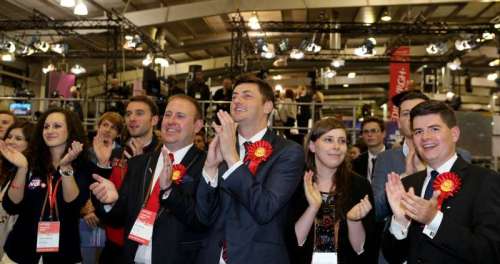
As Scotland Friday chose not to break away from the UK, with the Scots decisively rejecting a historic referendum on independence, the British prime minister said it is time for “our United Kingdom to come together, and to move forward”.
David Cameron also assured delivering on his promise of “more powers” while having also listened to those who voted “yes” in the poll.
The results Friday showed 55.42 percent of the Scots voting “No” for independence as against the 44.58 percent who favoured the referendum with “Yes”.
Residents of Scotland, 16 and older, including Commonwealth and European Union nationals, were eligible to vote on the question whether Scotland should leave the UK after 307 years of the union.
Glasgow, Scotland’s largest council area and the third largest city in Britain, voted in favour of independence 194,779 to 169,347, with Dundee, West Dunbartonshire and North Lanarkshire also voting “Yes”.
But Scotland’s capital Edinburgh rejected independence by 194,638 votes to 123,927, while Aberdeen City voted “No” by a margin of more than 20,000 votes.
The vote was the culmination of a two-year campaign.
Moments after the ‘Better Together’ campaign — advocating the “No” vote favouring continuity of the 307-year-old union — stormed to victory to ensure Scotland remains part of the UK, First Minister Alex Salmond, staunch proponent of Scottish independence, was cheered by supporters of the “Yes” campaign in Edinburgh.
In an emotional address, the Scottish National Party (SNP) leader said he accepted “the democratic verdict of the people” and called on everyone else to “do the same” as he admitted defeat in his fight for Scottish independence, the Independent reported.
Scots voted by a margin of around 55 percent to 45 percent to stay part of the UK, a move Salmond termed as evidence that the country did not want independence “at this stage”.
In Brussels, European Commission President Jose Manuel Barroso welcomed the decision of the Scottish people to maintain the unity of the UK. “This outcome is good for the united, open and stronger Europe that the European Commission stands for.”
As Scotland voted in a historic referendum to stay with the UK, the British prime minister said it was time to move forward.
“The people of Scotland have spoken. It is a clear result. They have kept our country of four nations together,” David Cameron said. “So now it is time for our United Kingdom to come together, and to move forward.”
A vital part of this, he said, would be a balanced settlement that was fair to people in Scotland and as also people in England, Wales and Northern Ireland as well.
Claiming himself as being a passionate believer of the UK, Cameron said: “But I am also a democrat. And it was right that we respected the SNP’s (Scottish National Party) majority in Holyrood (the heart of the Scottish government in Edinburgh) and gave the Scottish people their right to have their say.”
He assured more powers for Scotland.
“The three pro-union parties have made commitments, clear commitments, on further powers for the Scottish Parliament. We will ensure that they are honoured in full.”
He also added that Lord Smith of Kelvin, who successfully led Glasgow’s Commonwealth Games and is a former head of the BBC, would oversee the process of devolution of powers.
At the same time, he added that “a new and fair settlement for Scotland should be accompanied by a new and fair settlement that applies to all parts of our United Kingdom”.
Also respecting the sentiments of the people voting “Yes” for independence, Cameron said: “We hear you.”